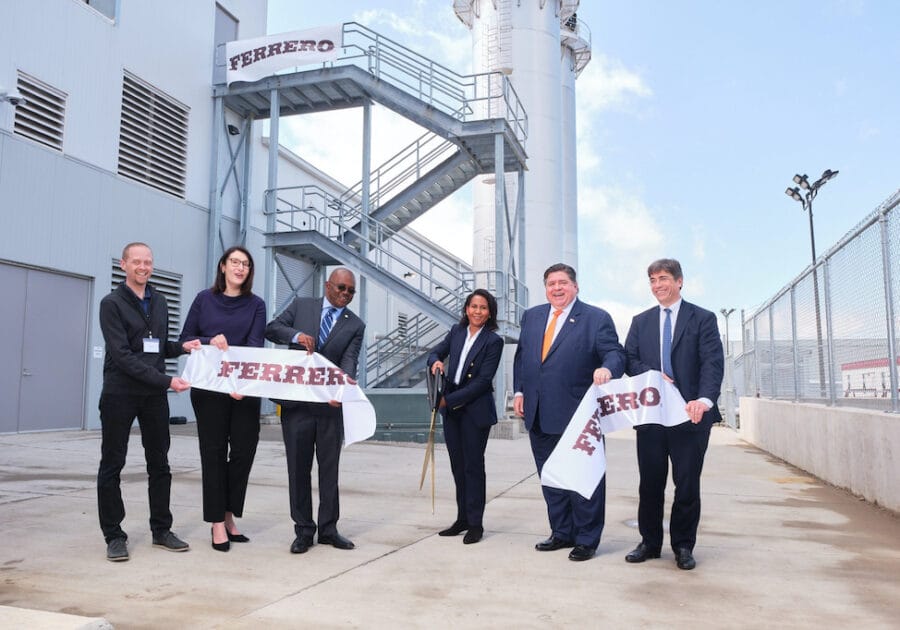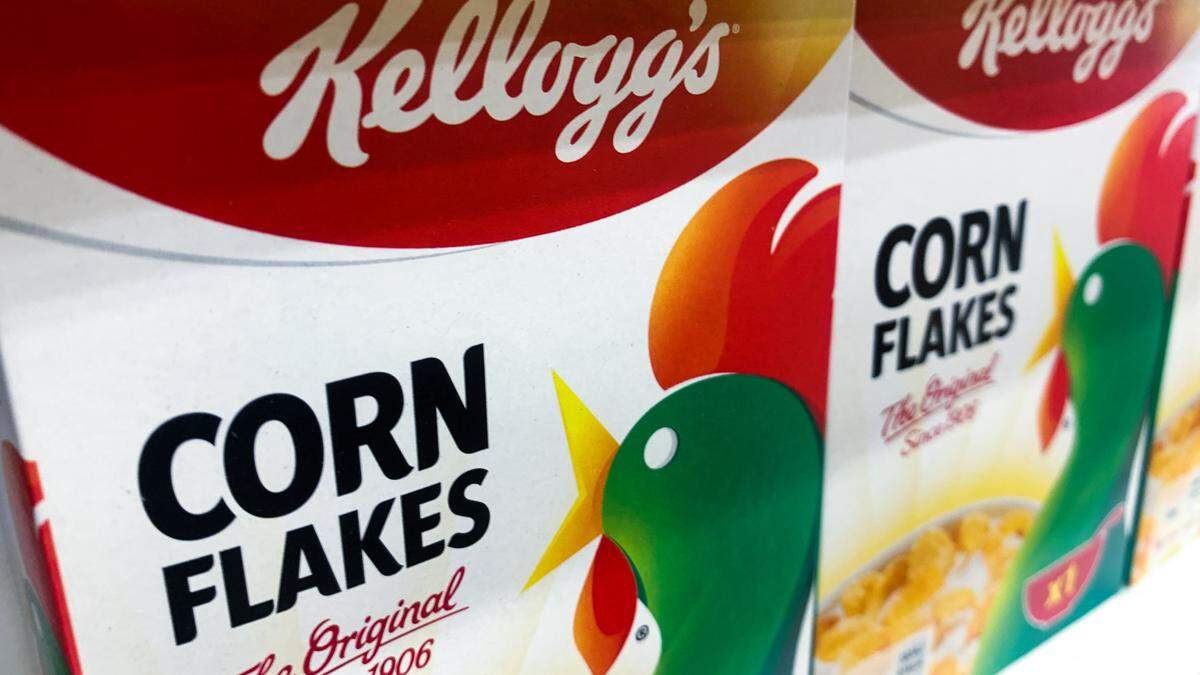In July 2025 the group released its 16th Sustainability Report, while in February 2025 it published consolidated financial statements for the 2023-2024 fiscal year and later announced an ambitious plan to acquire the American cereal maker WK Kellogg Co. Together, the reports and acquisition signal how Ferrero is balancing growth with sustainability and strategic diversification.
Ferrero is no longer just a maker of hazelnut spread. The family-owned Italian group, founded in Alba in 1946, has evolved into a global powerhouse in sweet and packaged food. It now markets more than 35 brands (Nutella, Kinder, Ferrero Rocher, Tic Tac, etc.) Although private, Ferrero publishes periodic updates on its performance and strategy, and has a presence in 170 countries, employing around 47,000 people.
Sustainability at the Heart of Growth
Ferrero’s recently released 2024 sustainability report highlights the deep integration of environmental and social goals into its corporate strategy.
Executive Chairman Giovanni Ferrero described sustainability as a fundamental driver of business resilience and emphasised the need to “source responsibly, innovate boldly, and safeguard the natural world for future generations”.
Traceability and Responsible Sourcing
One of Ferrero’s most notable achievements is the transparency of its supply chains. Partnerships with traceability platforms (Sourcemap and Starling) have enabled the group to map more than 90 % of key ingredients to their origin. Traceability for cocoa and palm oil has reached 97%, and hazelnuts are at 94% traceability. Such granular visibility helps Ferrero and its partners reduce deforestation risks and address human‑rights issues in the cocoa belt.
Decarbonisation and Renewable Energy
The company has set a goal of halving greenhouse‑gas emissions by 2030 compared with the 2017/18 baseline. Progress is tangible:
- Scope 1 and 2 emissions are down 21.7%.
- 90% of the electricity used in manufacturing and warehousing now comes from renewable sources.
Ferrero claims it is refining its carbon accounting by disaggregating Scope 3 emissions between forest, land and agriculture (FLAG) and non‑FLAG categories, a step that should improve data reliability and guide targeted interventions.
Sustainability Highlights at a Glance
The progress above provides a credible foundation for the group’s growth ambitions, and is supported by solid financial results.

Ferrero Financial Performance 2023-2024: Growth in a Challenging Environment
Ferrero’s consolidated financial statements for the fiscal year ended 31 August 2024 confirm that its sustainability commitments have not come at the expense of growth. The group reported turnover of €18.4 billion, an 8.9 % increase over the previous year. Total capital investment rose 18% to €958 million, with spending focused on expansion in the United States, Italy, Germany and Chile. CFO Daniel Martinez Carretero attributed the strong performance to Ferrero’s ability to innovate and adapt in a volatile environment.
Resilience Amid Economic Headwinds
Commodity price volatility and high inflation characterised the 2023-2024 period, yet Ferrero maintained momentum thanks to its diversified portfolio and global footprint. The group operated 37 manufacturing plants and employed 47,517 people as of the fiscal year-end. Its brands continue to resonate with consumers, and management credits continuous innovation for keeping products relevant.
Product and Category Expansion
Ferrero’s growth is not solely driven by legacy products. In 2023-2024, it launched Nutella Ice Cream, the brand’s first packaged ice cream, and expanded its presence in biscuits with Kinderini. The company also continued to roll out Eat Natural and FULFIL nutrition bars across Europe, tapping into the 'better‑for‑you' segment.
“These launches show a willingness to move beyond chocolate spreads and pralines into adjacent categories such as frozen desserts, biscuits and functional snacks,” a brand analyst told Cocoaradar.com.
Investing for Capacity and Local Presence
To support its broader portfolio and geographic reach, Ferrero stepped up capital expenditures. Highlights include the opening of a 70,000‑square‑foot chocolate processing plant in Bloomington, Illinois, which produces chocolate for Kinder, Ferrero Rocher, Butterfinger and CRUNCH and now houses a new Kinder Bueno production line. The group is also modernising its Stadtallendorf facility in Germany and expanding hazelnut sourcing and processing in Chile.
A Ferrero spokesperson said these investments not only strengthen supply security but also create local jobs in major markets.
Financial Highlights

Strategic Expansion: Acquiring WK Kellogg Co
In early July, Ferrero announced a definitive agreement to acquire WK Kellogg Co for $23.00 per share in cash, valuing the cereals business at $3.1 billion and offering shareholders a 40% premium to the 30-day volume-weighted average price. The acquisition encompasses WK Kellogg Co’s manufacturing, marketing and distribution operations for its iconic breakfast cereals in the United States, Canada and the Caribbean, thereby expanding Ferrero’s reach into the breakfast aisle.
The deal has been unanimously approved by WK Kellogg Co’s board and is expected to close in the second half of 2025, subject to shareholder and regulatory approvals.
Rationale: Diversification and North American Growth
Ferrero’s North American portfolio already includes global favourites like Nutella, Kinder, Tic Tac and Ferrero Rocher as well as American brands such as Butterfinger, Keebler, Famous Amos, Jelly Belly, NERDS, Trolli and ice‑cream brands like Blue Bunny and Halo Top.
With more than 14,000 employees across 22 plants and 11 offices in North America, Ferrero will gain scale and distribution capabilities that extend beyond confectionery. Ferrero CEO Lapo Civiletti emphasised that the cereals portfolio represents a meaningful addition that will expand Ferrero’s presence across more consumption occasions.
CocoaRadar’s Bottom Line: How Quickly can Ferrero Integrate Cereals' Operations while Maintaining Quality and Culture?
For cocoa and confectionery professionals watching Ferrero, the message is clear: growth and sustainability can co‑exist. By investing in responsible sourcing, innovative products and strategic acquisitions, Ferrero is building a diversified portfolio that extends well beyond chocolate while remaining rooted in its family‑owned values.
By integrating cereals, Ferrero moves beyond snacks and confectionery into the large breakfast category. The deal diversifies revenue streams, enhances supply‑chain scale in North America and creates cross‑selling opportunities between Ferrero’s sweet brands and WK Kellogg Co’s cereals.
Management has pledged to keep Kellogg's Battle Creek as a hub, signalling respect for WK Kellogg Co’s heritage.
Still, the acquisition also exposes Ferrero to new competitive dynamics - ready‑to‑eat cereals face stiff competition from private‑label offerings and evolving breakfast habits. Ferrero will need to leverage its marketing prowess and product‑development capabilities to revitalise iconic cereals while addressing health‑conscious consumer trends.

